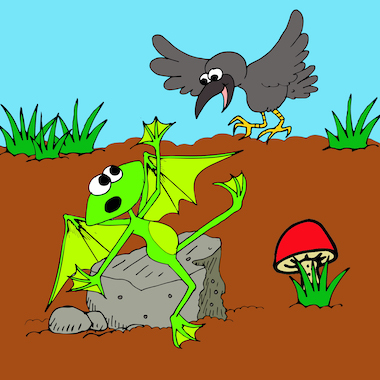Those considered wheat are the same as those that are spotless and without wrinkle, etc. When they are resurrected they receive celestial type bodies and immediately go to be with the LORD in the Father's house which is New Jerusalem. Then New Jerusalem starts its millennial journey to the New Earth.Valo wrote: ↑Sat Mar 16, 2024 3:33 am "37 And that which thou sowest, thou sowest not that body that shall be, but bare grain, it may chance of wheat, or of some other grain:
That which we sow is the Christ seed into our children at conception. But the Christ seed sown is not our future body. It helps us bare grain, a seed of our own. It is that seed that receives a new body."
Thanks for the response. Lots to consider but the part I have in quotation marks stood out to me at the moment. First I think it is a beautiful description of what those verses of scripture are saying in that it makes sense and has implications that are profound, to me.
To summarize or stated in another way the idea here is that God gives us a portion of His Spirit, we apparently receive it through our parents, those of us not tares, at least, but this portion isn't "our" identity yet, or it isn't our spirit, yet, but the portion of Father's spirit we do have is what allows us to generate or to produce a spirit of our own that is like Father's or wheat or another type of spirit or identity.
Through the seed of Christ loaned to us, if we so desire, may use it to create our own seed. It is up to us to use the portion of God's spirit given to us to produce a seed, but is it by "chance" that the seed we end up producing will be a wheat seed, some other seed, or do we have control over what seed gets produced?
Are we shaping our identity or revealing it?
...
The tares of course have no viable seed within them and they are not resurrected.
That leaves everyone else and since they are not wheat and not tares it means that they are of some other grain. All that really means is that they are of some other level of glory and they have not qualified for immortality. So they are given another chance on the New Earth to qualify. That means that they receive mortal terrestrial type bodies upon the New Earth. Then they must keep God's commandments to eventually receive immortality. The difference between trying to keep God's commandments on this earth or the New Earth is that on this earth God does not strive with man to help him keep his commandments. On the New Earth God will once again strive with man to help man to keep his commandments. And thus qualify for immortality. However, the wicked will reject God's help and become/remain sinners and will follow Satan when he is released out of the pit that is death. Realize the wicked and the godless are two different groups. The godless have zero Christ Spirit within them and they are not resurrected. The wicked can have some of the Christ Spirit still within them (maybe even a lot) but they choose to do wickedly. The parable of the ten talents explains the mechanics quite well. The one given 5 talents and the one given 2 both grew their talents and were rewarded. The one given 1 talent just buried it in the ground to keep it safe. Isn't it obvious that the talents represents the Christ seed which is the only valuable currency of heaven. And we are required to grow our talents, the Christ Spirit within, by keeping God's commandments the best we can. If we don't the Christ Spirit that we do have will be taken away and given to others. The glory we receive at the resurrection depends upon the glory of the seed we produce. So to answer your question, we shape it with a little help from God and God reveals it at the resurrection by the body he gives to each of us.


